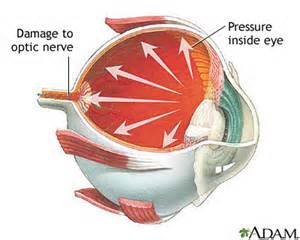Get started with a simple glaucoma checklist.
Glaucoma is a condition that causes damage to your eye’s optic nerve and gets worse over time. It’s often associated with a buildup of pressure inside the eye. Glaucoma tends to be inherited and may not show up until later in life.
Glaucoma Checklist, Prevent Damage To Your Eyes
The increased pressure, called intramuscular pressure, can damage the optic nerve, which transmits images to the brain. If damage to the optic nerve from high eye pressure continues, glaucoma will cause permanent loss of vision. Without treatment, glaucoma can cause total permanent blindness within a few years.
Because most people with glaucoma have no early symptoms or pain from this increased pressure, it is important to see your eye doctor regularly so that glaucoma can be diagnosed and treated before long-term visual loss occurs.
If you are over age 40 and have a family history of glaucoma, you should have a complete eye exam with an eye doctor every one to two years. If you have health problems such as diabetes or a family history of glaucoma or are at risk for other eye diseases.
Glaucoma most often occurs in adults over age 40, but it can also occur in young adults, children, and even infants. In African-Americans, glaucoma occurs more frequently and at an earlier age and with greater loss of vision.
You are at an increased risk of glaucoma if you:
- Are of African-American, Irish, Russian, Japanese, Hispanic or Scandinavian descent
- Are over age 40
- Have a family history of glaucoma
- Have poor vision
- Have diabetes
- Take certain steroid medications, such as prednisone
- Have had trauma to the eye or eye
Glaucoma treatment may include prescription eye drops, laser surgery, or microsurgery. Glaucoma cannot be prevented, but if it is diagnosed and treated early, the disease can be controlled. Loss of vision caused by glaucoma is irreversible and cannot be restored. However, successfully lowering eye pressure can help prevent further visual loss. Most people with glaucoma do not go blind if they follow their treatment plan and have regular eye exams.



